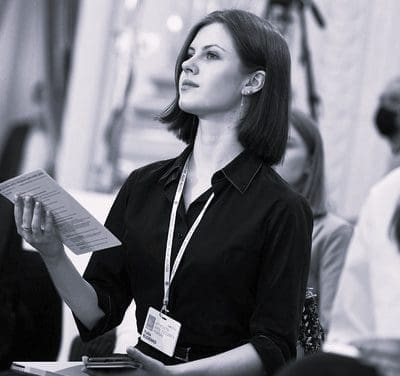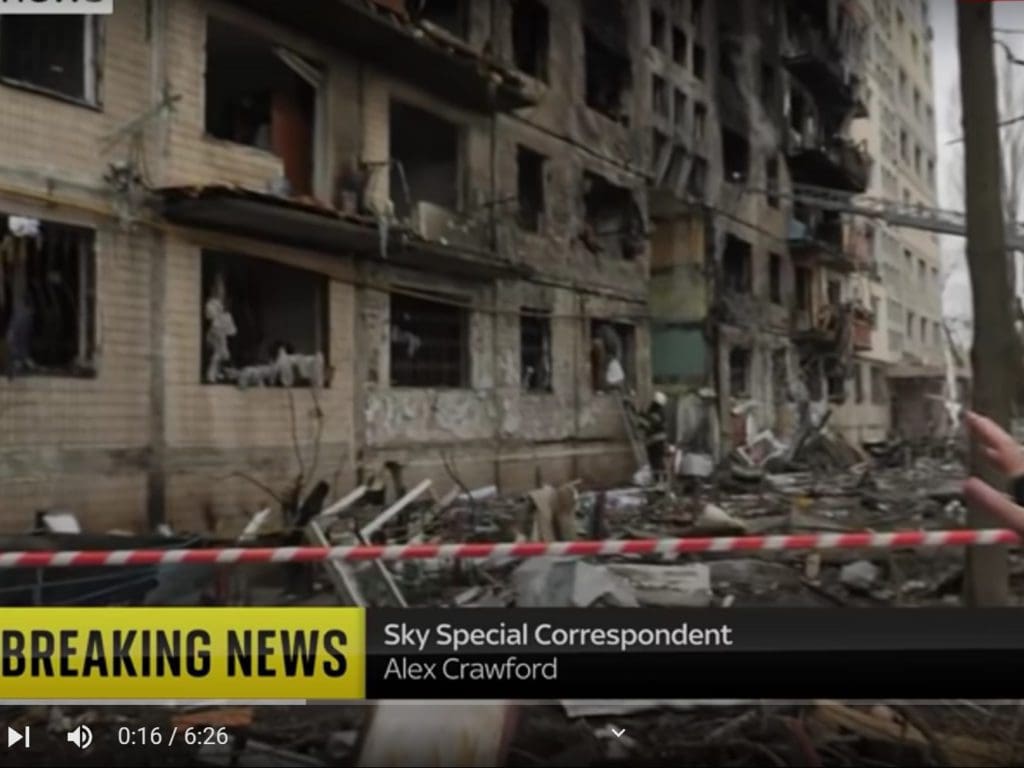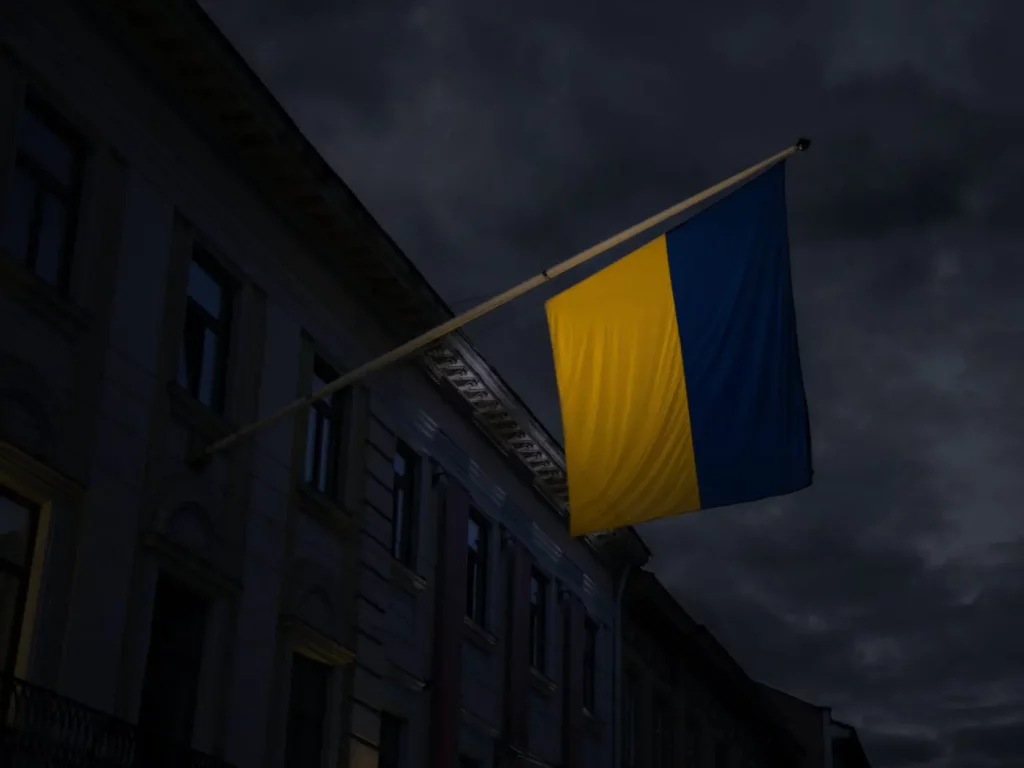Ukrainian journalist survives bombings and escapes to Western border with family
College student and Orato journalist Yuliia Rudenko details 18 days in war zone
- 2 years ago
March 15, 2022

CHERNIHIV, Ukraine—At 5:30 a.m. on Feb. 24, 2022, my telephone rang. I heard my boyfriend’s voice as he delivered shocking news.
Russia had launched a full-scale invasion on Ukraine.
It has been 18 days since that call came—18 days of running, hiding, and surviving. I am safe now, on the Western border, but perhaps not for long.
Finding refuge in a cold, dark room
My mother slept soundly in her bed. How could I wake her? What would I say? An invasion was coming, and it was imperative we flee.
My father works for the Ukrainian armed forces, so we live near military facilities. News spread quickly about the war. The Russian offensive claimed they would target military objects. It was not safe for us to be there, and we needed to run.
The minutes that followed were frenzied.
My mother, 5-year-old sister, and I filled backpacks with toothbrushes, socks, laptops, important documents, and all the cash we had on hand. My father had to stay. We said our goodbyes and he kissed my little sister, then he walked away and never looked back.
We fled for my grandparent’s house. Safe in a residential area comprised of private homes, we felt free from the conflict for a moment. We had lived through the day, but then night came.
The shelling arrived on the coattails of the dark, shattering our peace once again. Many homes in Ukraine have small rooms or holes dug underneath the floorboards. They serve as cold storage, with shelves for jarred potatoes, cucumbers, and tomatoes.
Huddled underneath my grandparent’s floor in the earth, we welcomed cousins and another grandmother. We brought mattresses down and slept with our coats on. Every night, stress consumed us as we faced the psychological war perpetrated by our attackers.
The bombs began falling all around us
When the bombardments began, the door in the floor above us began to shake. Soon, the entire house was shaking. The terrible sounds came ever closer. We covered our ears with both hands and opened our mouths to prevent rupturing our ear drums when the bombing reached our neighborhood.
My little sister screamed. We made up a story about thunder and rain, but it was impossible to hide the truth from her. She knew. She heard so much already. Yet we fought to control our own emotions for her sake.
There, in the dark, damp, cold, gray room, we brought forth a lighter and a pen so my sister could draw. Sitting on the mattress on the floor in her coat, she drew pictures of flowers on a white piece of paper by the flickering light.
We stayed there for four days. The stores had no more food, and a family friend risked his life to bring supplies.
With no electricity or heat and our food and water dwindling, we grew weak. Our throats hurt, and we began coughing. Weight loss was not far behind. We used a bucket as our toilet, and shame burned my cheeks, going to the bathroom in front of my family and my grandfather.
It became clear, no civilian area was safe from Russian bombs.

A chance to run while the Russians sleep
The Russian invaders appeared to rest in the morning. This would be a safe time for us to move. A family friend came to us in the quiet of dawn. He still had electricity in his district. “Come with me,” he insisted. He gave us five minutes to decide.
The choice was clear, but my sister feared going outside. We warned her to touch nothing. We heard news of Russian planes dropping expensive items like cellular phones and fancy toys into neighborhoods. They were rigged with explosives and would detonate in people’s hands. My sister was fast, and she liked toys. We needed to be cautious.
As we exited the house, devastation surrounded us. Neighboring homes were consumed by fire. Bombs lay in yards. The heavy sound waves that sweep through the streets during shelling had shattered all of the windows in my grandparent’s house. Glass lay everywhere.
The 15-minute drive to the neighboring district took us from one basement to another. When the bombing began again, we sheltered underground at our friend’s house. Nowhere near the city was safe. We needed to move further away.
Relying on a network of friends and contacts, we were taken to a remote village where a family was hosting internally displaced Ukrainians. We were dirty, exhausted and emotionally numb. When we pulled up to the house, a man and woman in their 60s whom we’d never met warmly embraced us as if we knew them our entire lives.
The tears finally came. They poured out of us.
Countrymen show hospitality in the midst of war
Though we didn’t stay long, life in the village felt more peaceful. Russian airplanes flew above us, but having escaped the constant bombing that had become normal, we developed new daily rituals.
In the morning we checked our messages. We reached out to friends still in hot spots: Are you alive? Is it quiet? Did you sleep?
When their phone batteries died and they stopped responding, we found ourselves hoping and waiting, wondering if we would ever speak to them again. We checked the news constantly, not because we wanted to, but because we had to. We needed to know if we must flee, or if a nuclear attack was coming.
At the grocery store in the village, the shelves were eerily empty. Shipments had largely ceased arriving but when supplies did come, the store owner called each family in the village to collect some bread. They were kind to one another. Those with small children received an extra loaf.
Still, our time was short. My father wanted us moved further west. A car would take us to a train which would take us to Western Ukraine.
The typical eight-hour drive would end up spanning some 30 hours. Other Ukrainians talked of a Russian prisoner of war who said they had orders to shoot civilians trying to evacuate. We were risking our lives to escape hell, but it was our best chance at survival.
From a car to a train to Western Ukraine
Packed into a car, we witnessed the devastation of our country first-hand.
Groups of Russian soldiers were everywhere. We moved through at least 30 skimpily built Ukrainian checkpoints made from tires, sandbags, and tree limbs, often manned by volunteers. They requested our passports to make sure we weren’t Russians trying to move about the country.
Some checkpoints were empty, burned to ash.
Fear and stress wrecked our bodies. My sister sat on my lap and when she wasn’t, I laid on the floor of the car. No one seemed to know which way was safe. My father, who was now stationed elsewhere, called ahead to friends in villages to check for safe passage.
Tired and hungry, we stopped and slept on floors or in underground rooms in the villages we traveled through. Their owners gave us food and water.
The frequent traffic jams made us feel trapped, like sitting ducks. When the cars ahead of us began to turn and retreat, we followed, fearing an attack. Later, my father would tell us that just one hour later, Russian tanks had lined the very roads we escaped on.
Eventually, we made it to the train station.
Weary citizens crowd train bound for safety
My father met us at the train station for one last goodbye. We spent 30 minutes together before we boarded.
Standing inside the packed car, we looked at him through the glass window for five long minutes. I found myself wishing those minutes would end. It hurt too much.
We promised him we would be strong but now, we were all crying—all except him. Joy filled his face, and he began laughing. He was so very happy; his work had paid off. He got us to safety.
I used to complain about the poor conditions on the trains in Ukraine, but sitting there, packed together, bound for the promise of escape, I felt incredibly comfortable.
Exhaustion painted every face around me. Bags circled their eyes. Women, children, and pets were all dirty. When we heard noises as innocent as a car going by, we cowered in fear.
I looked at my sister. She had fled home with her favorite toy—a white stuffed cat, now dark and grey. Another little girl approached her in the train car. She offered my sister one of her toys. “No thank you,” my sister answered politely, “I have many toys at home!”
The adults around us quietly watched the exchange. My sister did not understand that she may never go home again. In that moment, our hearts broke, and silence overtook us.
A call for solidarity and a reflection on happiness
During brief stops, volunteers flooded the train cars, bearing crackers, water bottles, and hard, old bread. It was amazing. I began to think of getting stronger and healthier again; of volunteering myself and becoming more resourceful.
All we want now is solidarity. We want governments to close the skies above Ukraine; but we also understand the fears of world war.
There are millions of us now: Ukrainians who are refugees or internally displaced. We hope we are safe, but the bombs are coming ever closer. If the war reaches Western Ukraine, my family and I will flee again. We will go to Poland or to France.
We don’t know how all this will end.
To the people who might be reading this who live in peace: you must cherish life’s moments, even more now. For Ukrainians like me, happiness has become a simpler concept. Spending a day in my home, sipping a cup of coffee, hugging my father and my boyfriend: that would be all the happiness I need.






























































































































































































































